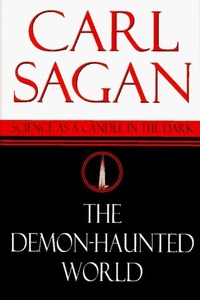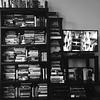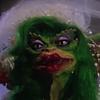Take a photo of a barcode or cover
Even though this book is not new and some of things debunked here - aliens, spoon bending - aren't exactly high on anyone's agenda, the basic points hold up very well. We need the scientific method and facts as a base for decision making, not bogus beliefs and hysteria. This is more needed than ever in a day and age were false news spread at lightning speed on social media, willfully monitored and fanned under by trolls, Russian and otherwise.
Mostly good, but spent way too much time on the ideas about UFOs, which holds no interest for me. It’s always good to be reminded of cognitive biases, though.
challenging
informative
medium-paced
I truly wanted to love this book because I admire Carl Sagan. I had planned to use it for our book club discussion. Sadly, the book is too disjointed to discuss or to heartily recommend. It is a collection of essays on various topics relating to science and superstition, pseudoscience, New Age woowoo thinking, and some aspects of religion. Some of the essays started as college lectures, and some were written for Parade Magazine. There is an unevenness to the tone.
I agree with much of Sagan's thinking. I hoped to learn more about science and the scientific method as he presented some of the fuzzy thinking that exists in our society. But the essays varied in quality and were often repetitive of previous essays. His tone is also very dismissive of religious viewpoints, even when they do not concern science. He did not really try to persuade the reader. I felt my hackles rising at certain points. Some of the better essays actually dealt with public life and education. The last chapter, 'Real Patriots Ask Questions' was among the best.
I did a mix of reading the physical book and listening to the audio. Most of the audio was read by actor Cary Elwes, with one chapter in the middle read by Seth McFarlane. I admit to to feeling a disconnect between Elwes' elegant reading and what I remember of Sagan's voice.
Recommended only for hardcore science fans.
I agree with much of Sagan's thinking. I hoped to learn more about science and the scientific method as he presented some of the fuzzy thinking that exists in our society. But the essays varied in quality and were often repetitive of previous essays. His tone is also very dismissive of religious viewpoints, even when they do not concern science. He did not really try to persuade the reader. I felt my hackles rising at certain points. Some of the better essays actually dealt with public life and education. The last chapter, 'Real Patriots Ask Questions' was among the best.
I did a mix of reading the physical book and listening to the audio. Most of the audio was read by actor Cary Elwes, with one chapter in the middle read by Seth McFarlane. I admit to to feeling a disconnect between Elwes' elegant reading and what I remember of Sagan's voice.
Recommended only for hardcore science fans.
A great exploration into the usefulness of scientific thinking in many aspects of life and society. Slow at the beginning with lots of detail on pseudoscience. Really picks up and hits the nail on the head on the second half. A lot of very valuable thoughts for how to apply critical thinking and error-correction.
At one point in the book, the author discusses the error bars of scientific journal articles, then goes on to muse why we do not have these things for news or political speech, something that could provide contemporaneous fact-checking.
Uh hun.
It can and will be said that the author is present. It would be hard for him not to be with some of the dead cat swings at parades of horribles he takes. Of course we skip the part on overpopulation and focus on the part on domestic manufacturing, even though it does not relate to his argument at large. (Arguably, the manufacturing sector in the U.S. is a success story under the author's terms, but producing more with a smaller, more educated workforce has consequences). He also makes some bad calls. The jabs against post-modernist takes on science feel otherworldly, and the way he treats sexual abuse is suggestive of him coming down on the wrong side for metoo. The book gets particularly wobbly at the end when the author starts including selections from letters that he has received on articles he has written in popular magazines. Outside of being an analog website comment section, many of these are so divorced from context or editorializing that I do not comprehend the author's point in reiterating them.
Some reviews talk about the dated nature of the material in its focus on UFOs and aliens, to which I give another 'uh hun,' at popular discussion in '24-25 about same.
This book is not what we did not do. It is what we did do, and was summarily rejected. We now live with the consequence of the error.
Uh hun.
It can and will be said that the author is present. It would be hard for him not to be with some of the dead cat swings at parades of horribles he takes. Of course we skip the part on overpopulation and focus on the part on domestic manufacturing, even though it does not relate to his argument at large. (Arguably, the manufacturing sector in the U.S. is a success story under the author's terms, but producing more with a smaller, more educated workforce has consequences). He also makes some bad calls. The jabs against post-modernist takes on science feel otherworldly, and the way he treats sexual abuse is suggestive of him coming down on the wrong side for metoo. The book gets particularly wobbly at the end when the author starts including selections from letters that he has received on articles he has written in popular magazines. Outside of being an analog website comment section, many of these are so divorced from context or editorializing that I do not comprehend the author's point in reiterating them.
Some reviews talk about the dated nature of the material in its focus on UFOs and aliens, to which I give another 'uh hun,' at popular discussion in '24-25 about same.
This book is not what we did not do. It is what we did do, and was summarily rejected. We now live with the consequence of the error.
I'm sorry to say that I was disappointed. While everything that Sagan writes is true,I found his examples to be of an earlier, more innocent time, when we were faced with people who believed in ghosts or alien abduction rather than people who have been tricked into believing in a worldwide conspiracy specifically aimed at harming them. He's probably right in the respect that more science in school would help (although I do think that our current danger primarily comprises people who were home schooled by parents who were not at all prepared for it), but I think his criticism of Star Trek was a bridge too far. It seems that he missed the part about distant planets being an allegory for Earth while he was too busy lecturing us on why Spock could not exist.




